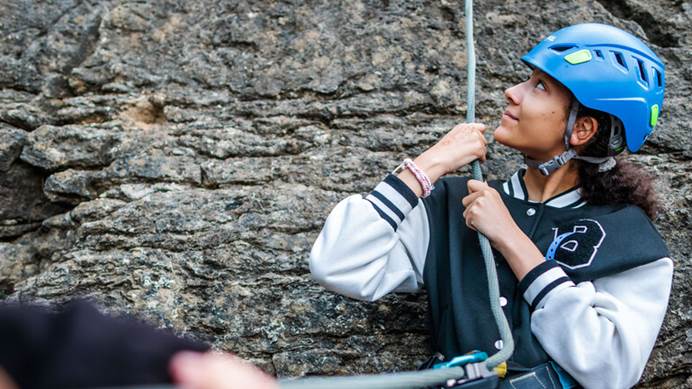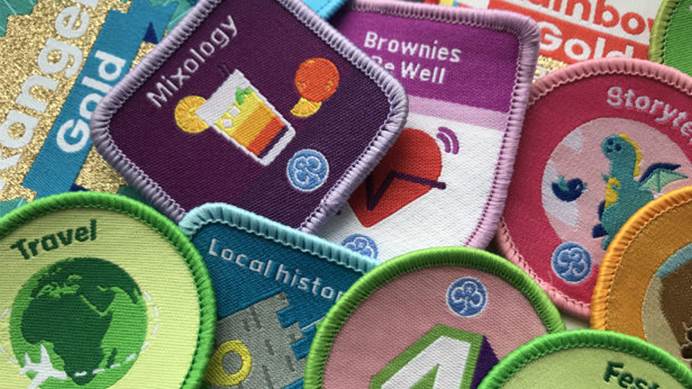Walking safety
We've put together some tips on how to be safe while you're having adventures that involve walking
There are a few things to consider when doing walking activities.
Walking on roads
- When you're walking, always follow the rules for pedestrians in the current edition of the Highway Code.
- Also make sure everyone follows the Green Cross Code.
- Don't hitch-hike under any circumstance. Have a look at all our prohibited activities.
- If you're in a group, walk on the pavement wherever possible and face the oncoming traffic. This means you can easily watch the traffic and assess any problems ahead.
- Wear light-coloured or reflective clothing.
- Think about increasing the ratio of adults to girls depending on the route.
Where there is no pavement or path, and your group has fewer than 20, you must:
- Keep to the right and walk in single file.
- Keep close to the side of the road.
- Take care at sharp right-hand bends. If necessary cross the road before the corner, then cross back to face oncoming traffic.
If your group has 20 or more you must:
- Keep to the left and walk in single file.
- Have lookouts at a safe distance in front and to the rear. Wear fluorescent clothes during daylight.
Walking at night
- If walking at night on a road, make sure you wear light-coloured or reflective clothing.
- The lookout at the front must show a white light while the rear lookout shows a red light, visible from behind.
Walking near water
As a leader, you must ensure that you give all participants any necessary safety instructions. You may delegate this task to someone else, but you remain responsible for ensuring it's done.
If your group is walking near water, familiarise yourself with the water safety guidance.
When walking near water, be aware of the dangers posed by waterborne diseases such as Leptospirosis and Weil's Disease.
Environmental factors
You must follow the Countryside Code and be aware of countryside access and rights of way.
When walking in grazing areas, make sure you're aware of the risks of E. coli and of the importance of handwashing before eating food. If handwashing facilities aren't available, provide antibacterial wet wipes or gel.
Also make sure you know about tick-borne Lyme disease.
Find out about – and stick to – local and seasonal restrictions, particularly those relating to fire, water, shooting and blasting.




